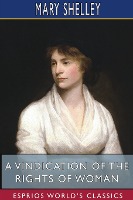A Vindication of the Rights of Woman: with Strictures on Political and Moral Subjects (1792), written by the 18th-century British proto-feminist Mary Wollstonecraft, is one of the earliest works of feminist philosophy. In it, Wollstonecraft responds to those educational and political theorists of the 18th century who believed that women should not receive a rational education. She argues that women's education ought to match their position in society, and that they are essential to the nation because they raise its children and could act as respected "companions" to their husbands. Wollstonecraft maintains that women are human beings deserving of the same fundamental rights as men, and that treating them as mere ornaments or property for men undermines the moral foundations of society.

